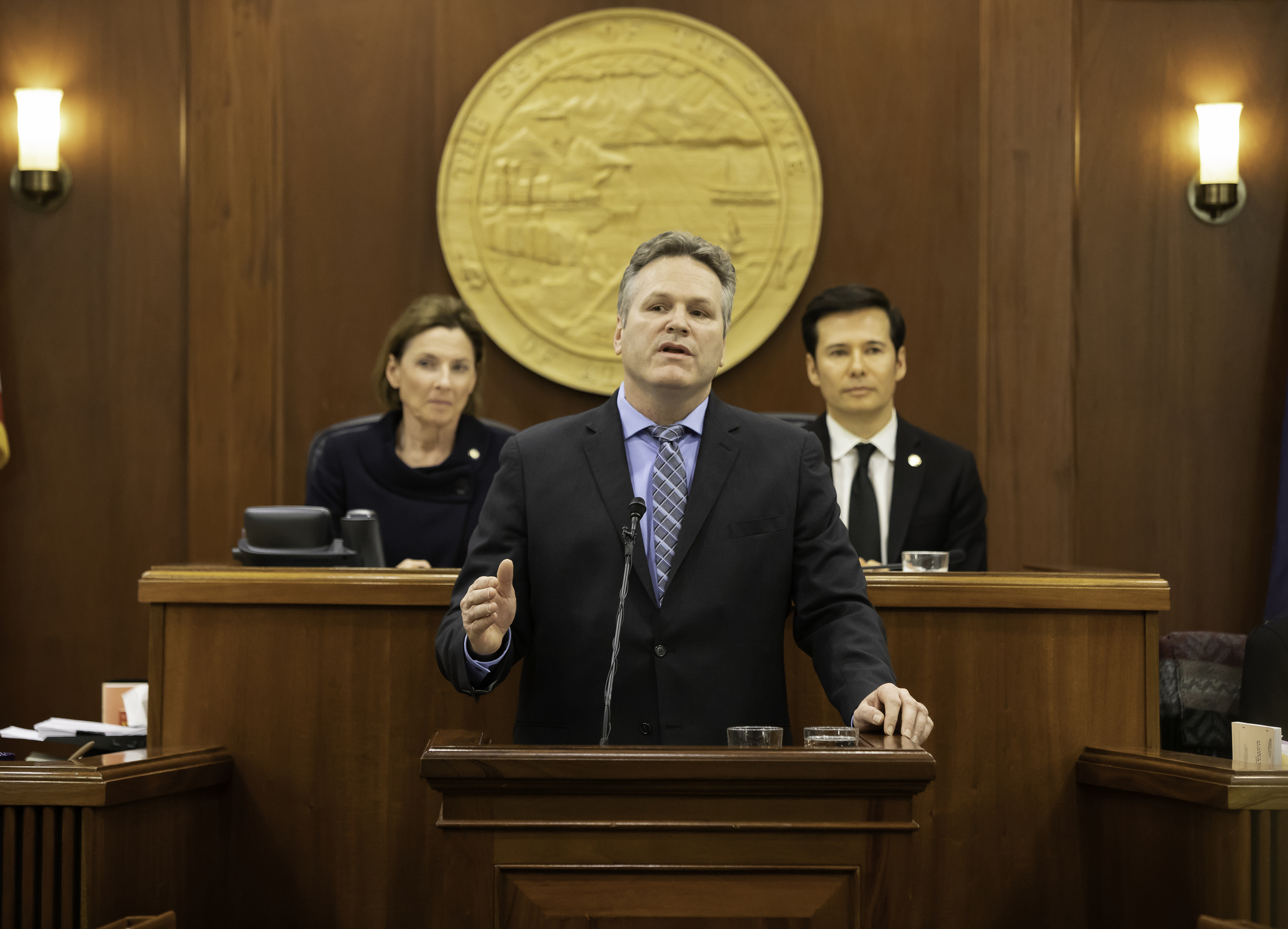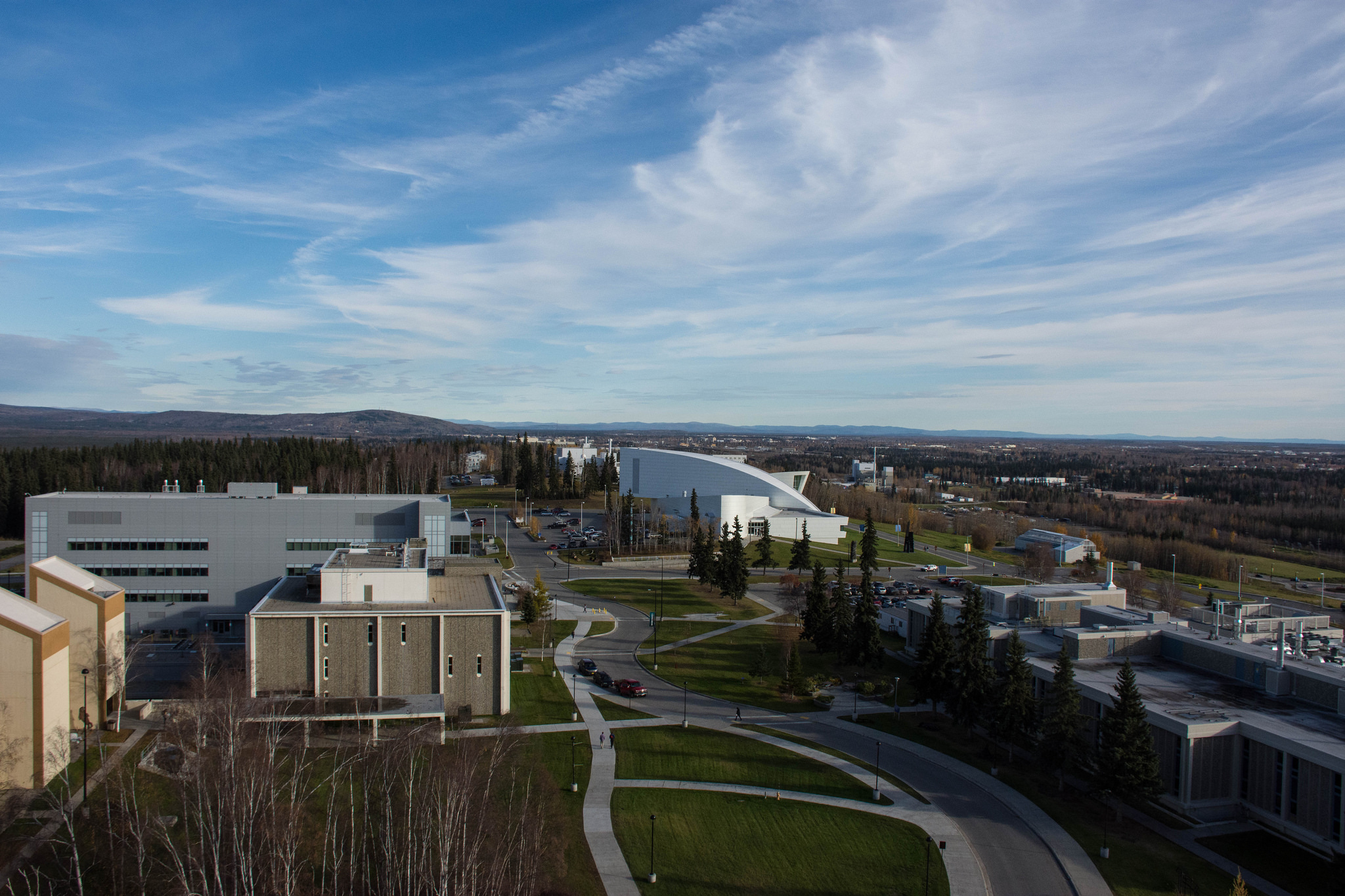Alaska’s Arctic communities and universities are targeted for deep budget cuts
Alaska's new proposed budget slashes university spending, and ends a program to alleviate high energy costs in the state's rural communities.

Arctic communities and Arctic research in Alaska would be hard hit by a draconian budget and related legislation introduced on Wednesday by the state’s new governor.
Gov. Mike Dunleavy, a Republican elected in November, proposes nearly across-the-board slashes that chop $1.6 billion from the state budget, about a quarter of the current year’s combined spending for government operations and capital programs.
Some of the deepest cuts are aimed at the University of Alaska, one of the world’s premier Arctic research institutions. It would lose 44 percent of its funding.
Dunleavy’s budget also proposes to eliminate a $1 billion fund that subsidizes rural energy costs. The Power Cost Equalization Endowment Fund uses investment earnings to subsidize energy utilities in rural communities, where costs are several times the national average.
The proposal to drain the fund appears to be a reversal from Dunleavy’s stance during the campaign. In a debate prior to the Republican primary, he said he would make no cuts to the Power Cost Equalization program.

In a separate measure, Dunleavy is also seeking to strip municipal governments of the power to assess taxes on oil and gas properties. A bill he introduced, SB 57, would give that power to the state. The local government that would be most affected is the North Slope Borough, which spans much of Alaska’s Arctic and is home to most of the state’s oil fields. But Fairbanks and Valdez, communities that tax portions of the Trans Alaska Pipeline System, would also be affected, as would local government revenues from oil properties in southcentral Alaska’s Cook Inlet basin.
Alaska has been struggling with budget problems for years. The state relies heavily on oil royalties, taxes and fees for most of its operating revenues; there is no statewide income tax or sales tax. At times in the past, oil revenues accounted for 90 percent of the state’s operating funds. But oil production is declining and oil prices have dropped.
Dunleavy, at a news conference in Juneau, said Alaskans likely knew such deep cuts were coming after years of the state using savings accounts to balance its budgets.
“I think they expected a budget like this,” he said. “As a matter of fact — I’m going to be bold here for a moment — I think everybody in this room knows we have to get our fiscal house in order. And I think everybody in this room and in this state realizes that there’s going to be sacrifices across the board, that this has gone on too long and that it’s got to stop.”
Donna Arduin, Dunleavy’s budget director, singled out the university system as one area of state government that needs deep cuts. “Our investment in University of Alaska is much higher than other states and is eroded by low retention and graduation rates,” she said at the governor’s news conference.

University of Alaska President Jim Johnsen said Dunleavy’s budget would be disastrous for the university system, which has already reduced staff and programs and hiked tuition to cope with past years’ state budget problems.
“This is the largest budget cut in the university’s 100-year history,” Johnsen said in an open letter to the university community.
At a news conference held in Fairbanks, Johnsen characterized Dunleavy’s plans as counterproductive and short-sighted. “I respect the governor’s boldness and his vision for a sustainable and growing Alaska. This budget, however, at least how it impacts Alaska’s university system, guts one of our state’s most powerful tools for realizing that vision,” he said at the news conference.”
State Sen. Donny Olson, a Democrat who represents the Arctic coastal regions of northern and northwestern Alaska, said the North Slope Borough uses the revenue it gets from taxing oil property to provide essential services like public safety, water and sewer utilities and schools.
“Removing their taxing ability would be devastating to the area,” Olson wrote in a Facebook post. “The vast majority of Alaska’s known oil reserves are located on the North Slope and attempting to take their tax revenue is irrational.”